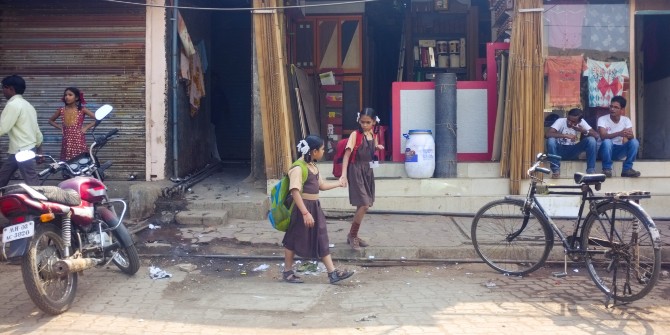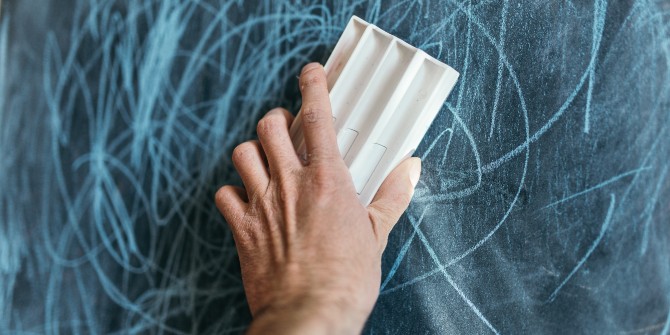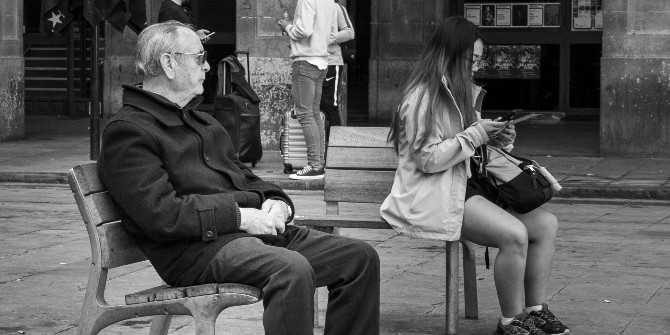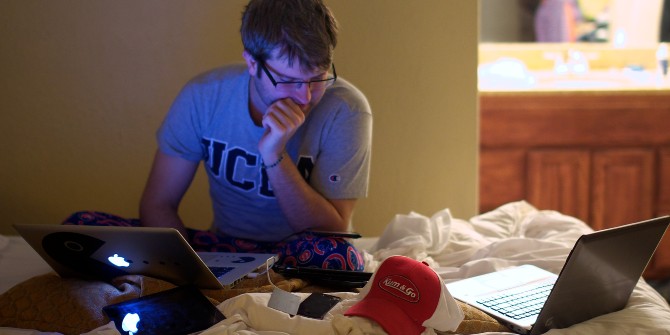Before children in India can re-engage with the curriculum, they need to process the trauma of the pandemic, write Preksha Singh, Angana Das and Sreehari Ravindranath (Dream a Dream). Experiencing financial hardship at home, the deaths of family members and the loss of their routine will take time to overcome.
India is only now reopening schools after closing them in March 2020 and moved – at least nominally – to digital learning platforms. According to a study by Azim Premji University, 92% of children have lost at least one specific language and 82% a mathematical ability from the previous year, across all classes. This learning loss has been accompanied by an exponential increase in violence, abuse, neglect, and exploitation of children, with one government helpline receiving 92,000 calls about child abuse and violence in just 11 days.
Even as social structures were disrupted, existing vulnerabilities and inequities were exacerbated. An Observer Research Foundation report highlighted that although education was supposed to have moved online, socioeconomic status and geographical factors influenced the effectiveness of virtual learning. About 56% of children have no access to smartphones for e-learning. Reopening schools and resuming in-person learning is therefore essential. However, a business-as-usual approach as schools reopen will not work. They need to fundamentally reconsider the way they operate.
In the past 18 months, children have experienced a loss of their normal routine, uncertainty about loved ones’ health, and financial insecurity, all of which could be emotionally overwhelming in the absence of stable support systems. Such children may have experienced a range of psychological issues such as anxiety, low mood, insomnia, and loss of appetite. So along with a focus on learning loss, reopening plans need to reflect children’s lived experiences in the post-COVID world.
To understand the apprehensions, preparation, and readiness for school reopening after prolonged school closures, Dream A Dream conducted focus group discussions with parents, teachers, and principals from our partner schools, which are low-cost private schools.
The discussions revolved around three critical questions:
- To what extent are schools prepared for reopening?
- What are the most worrying aspects of school reopening?
- How prepared are you to deal with students who lost loved ones to COVID?
While most parents were eager to send their children to school, some were concerned about the third wave of the pandemic. Parents, teachers, and school principals suggested a safe and phased reopening of schools consistent with the multi-layered mitigation strategy suggested by the Indian Council of Medical Research (ICMR) in their latest study. To manage the density of children in a small space, they have recommended reducing the length of regular school days, and dividing students into smaller groups with distanced seating arrangements and distinct lunch hour timings. Although schools recognise the need to disinfect their premises frequently and provide masks and sanitiser to the students, they also worry about the behavioural challenges and financial costs associated with these measures. For instance, for younger children, wearing masks for long hours would be difficult. Similarly, finding funds to hire more teachers to cater for smaller groups of children would not be possible. They proposed drawing up a school reopening plan with parents by using parent-teacher meetings to understand behavioural patterns and the accommodations children need. They also suggested that parents could help to make young people aware of COVID-appropriate behaviour in social settings.

During lockdown, children have had limited access to play and opportunities to socialise with their peers, which is critical for their psychosocial wellbeing and development. Even at the family level, the pandemic brought new stressors on parents and caregivers like pay cuts and the loss of jobs during the pandemic, which limited their capacity to engage meaningfully with children. Children learn from their immediate environment. They have noticed, absorbed, and reacted to these stressors, which has affected their own wellbeing. Some children have lost family members. Others have witnessed extreme financial hardship at home.
Both teachers and principals are aware of the impending mental health implications and believe that they need to understand children’s lived experiences and focus on creating a safe environment for children in school to help them process their experience before re-engaging with the syllabus. Practices like yoga, meditation, and mindfulness will help to do this. However, educators were never prepared to respond to a crisis of this level. As they resume their roles, they need capacity-building and psychosocial support themselves. Research tells us that teachers’ occupational stress is linked to students’ physiological stress regulation, pointing to a need for support for interventions that focus on teachers’ wellbeing too. This will not be easy. Low-cost private schools are already financially strained, and paying for both COVID safety measures and mental health support is expensive.
This post represents the views of the authors and not those of the COVID-19 blog, nor LSE. The authors would like to acknowledge the support and assistance of Pavithra K L, Raveena and Varsha Pillai, Annie Jacob and Ravinchandra K in carrying out a focus group discussion with various stakeholders.






Thank you for the very informative article. Great work!
We cannot do nothing and look away, while this happens.
So many lives affected, of both teachers and children.